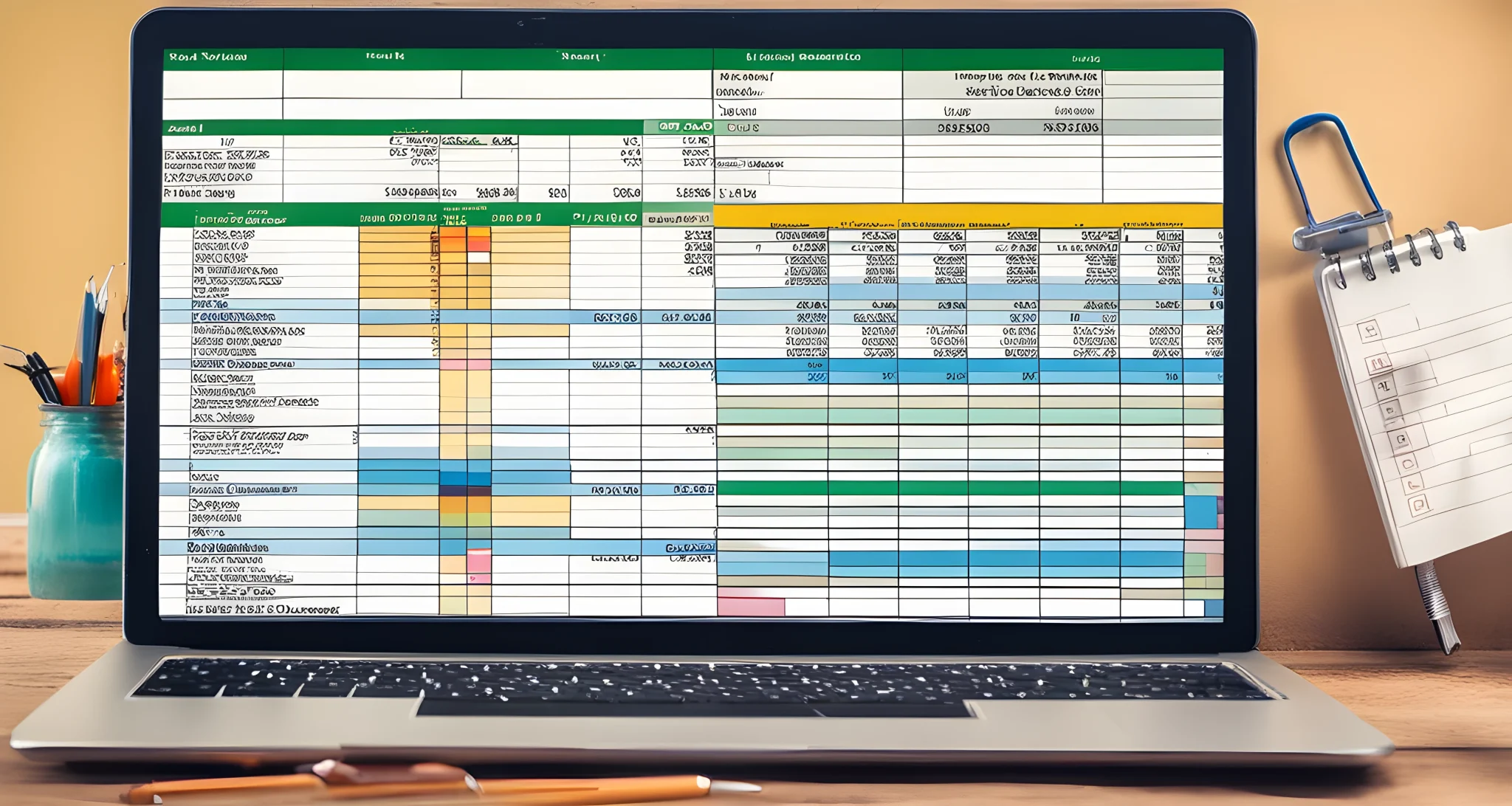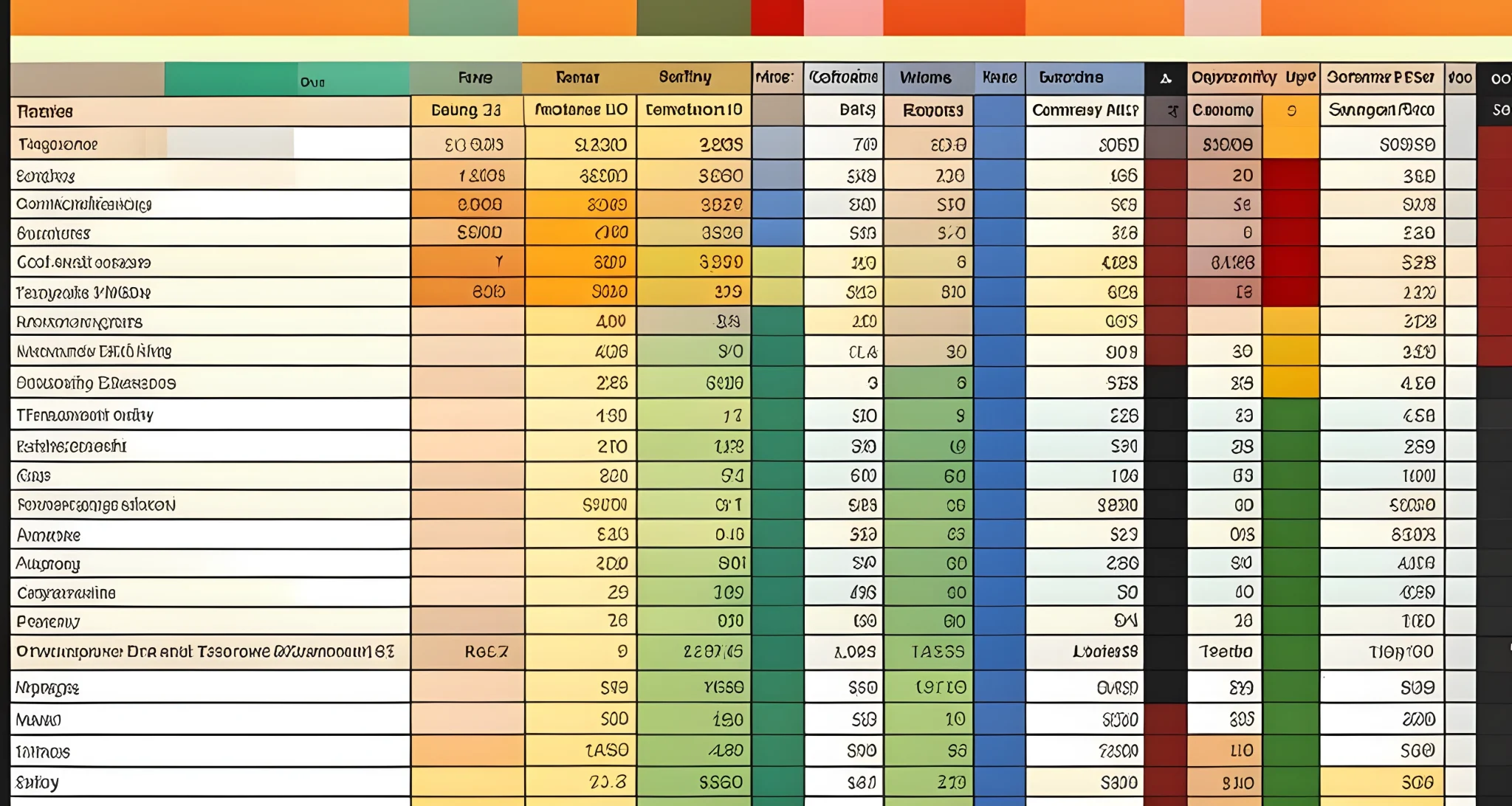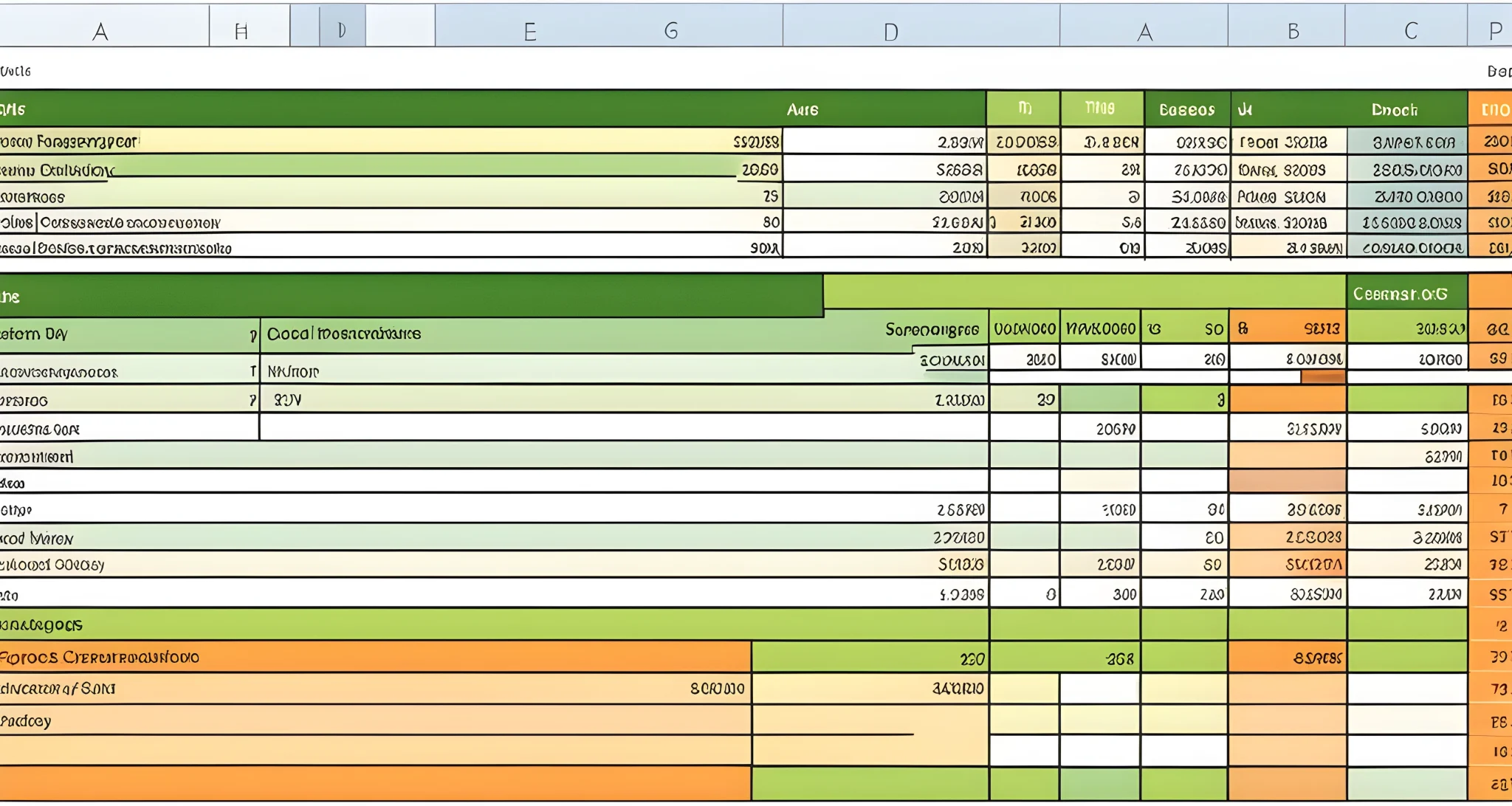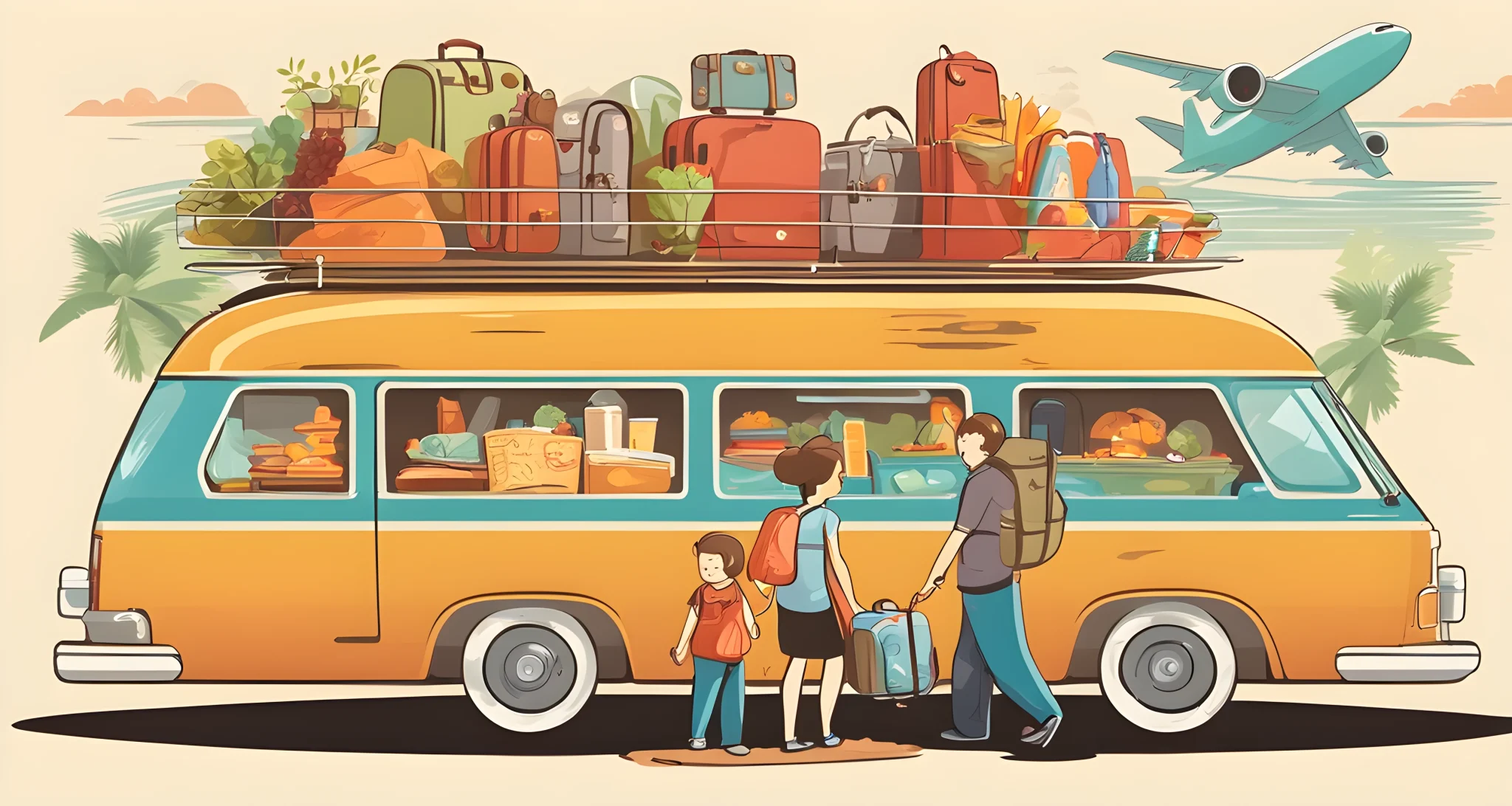Introduction
Traveling on a budget with your family requires careful planning and prioritizing. By following these tips, you can make the most of your travel experience while staying within your budget.
From choosing destinations and timing your travel to researching costs and creating a detailed budget spreadsheet, there are many ways to save money and still enjoy a memorable family vacation.
For more money-saving travel tips, check out Budget Travel Tips: How to Travel the World on a Budget.

Choosing Destinations and Duration
When planning a budget travel for your family, it’s important to carefully consider the destinations and the duration of your trip. Here are some tips to help you make the most of your travel budget:
Opt for Off-Peak Seasons and Lower Cost Destinations
- Choose destinations that have a lower cost of living to stretch your budget further.
- Consider traveling during off-peak seasons to take advantage of lower accommodation and transportation costs.
- Research developing countries where the daily budget for a family of five can be as low as $150.
Strategic Choices for Cost Reduction
- Be strategic with your choices to reduce the overall cost of your family travel.
- Look for destinations where you can find affordable accommodations and dining options.
- Consider visiting places with free or low-cost attractions and activities for families.
Research and Planning
- Research potential destinations to understand their cost of living and plan your trip accordingly.
- Use resources like Money-wise travel tips to find valuable information on budget-friendly destinations and travel strategies.
By carefully choosing your destinations and planning the duration of your trip, you can make the most of your family’s travel budget while still having a memorable and enjoyable experience.

Researching Average Costs
Before embarking on your family trip, it’s crucial to research average costs for transport, accommodations, and activities in your chosen destination. By doing so, you can make informed decisions that fit your budget and ensure a stress-free vacation.
Transportation Options
- Research all transport options, including local buses, trains, budget airlines, or carpooling to find the most economical choices. Use websites like Save Big Trip to compare prices and find the best deals.
- Consider the convenience and cost-effectiveness of each option before making your decision.
Accommodation Choices
- Look into alternative accommodations such as camping, hostels, or apartments instead of luxury hotels. These options can often provide a more authentic experience while also being more budget-friendly.
- Utilize online booking platforms to compare prices and read reviews from other travelers to ensure you’re getting the best deal.
Activity Costs
- Research the costs of activities and excursions in your chosen destination. Look for free or low-cost activities that provide entertainment for the whole family.
- Consider purchasing city passes or attraction bundles to save money on multiple activities.
By creating a detailed travel budget spreadsheet and filling it with information gathered from your research, you can ensure that you’re staying within your financial means while still enjoying a memorable trip with your family.
In our next section "Creating a Detailed Travel Budget Spreadsheet," we will discuss how to organize this research into a comprehensive budgeting tool to keep track of all your trip expenses.

Creating a Detailed Travel Budget Spreadsheet
To effectively manage your family travel budget, it’s beneficial to create a detailed spreadsheet outlining all anticipated expenses. By having a clear overview of your planned expenses, you can make informed decisions and identify areas where you can save money.
Expense Categories
- Transportation: Include costs for flights, rental cars, public transportation, and fuel.
- Accommodations: Allocate funds for hotel stays, Airbnb rentals, or campground fees.
- Meals: Plan for dining out, groceries, and snacks on the go.
- Activities: Budget for sightseeing tours, theme park tickets, and other entertainment options.
- Miscellaneous Expenses: Set aside funds for souvenirs, travel insurance, and unexpected costs.
By including these categories in your spreadsheet, you can track every aspect of your budget and ensure that no expense is overlooked.
Using Travel Planning Tools
When creating your travel budget spreadsheet, you can also utilize Low-Cost Vacation Planners to help you estimate costs for different aspects of your trip. These tools can provide valuable insights into average expenses for accommodations, transportation, and activities in your chosen destination. By using these resources, you can refine your budget and make more accurate cost projections.
Making Informed Decisions
Once you have all the categories outlined in your spreadsheet and have used travel planning tools to estimate costs, you can make informed decisions about where to allocate your funds. If you notice that one category is exceeding your initial estimates, you can adjust other categories to balance out your budget. For example, if transportation costs are higher than expected, you may decide to cut back on dining out or choose more budget-friendly activities.
Identifying Areas to Save Money
Having a detailed travel budget spreadsheet also allows you to identify areas where you can save money. For instance, if you notice that accommodations are consuming a large portion of your budget, you may consider alternative lodging options or look for discounts and special deals. By tracking every expense category, you can proactively find ways to cut costs without sacrificing the overall quality of your family trip.

Refining the Budget with Expense Categories
Once you’ve laid out the initial budget spreadsheet, it’s essential to refine it by breaking down expenses into specific categories. This allows for a more detailed and accurate representation of your expected costs.
Importance of Expense Categories
- Categorizing expenses such as transportation, accommodations, and activities can help identify areas where you may need to adjust your budget or find ways to cut costs.
- It provides a clear overview of where your money will be going, making it easier to prioritize expenses and allocate funds accordingly.
Transportation
- Separate expenses related to flights, train tickets, rental cars, or public transportation.
- Research average costs for these transportation methods to ensure accuracy in your budget spreadsheet.
Accommodations
- Categorize hotel stays, vacation rentals, or campground fees.
- Consider the location and duration of your stay when estimating accommodation expenses.
Activities
- Allocate funds for sightseeing tours, entrance fees to attractions, or any planned excursions.
- Research average costs for popular activities at your destination Thrifty travel tips.
Food and Dining
- Separate expenses for groceries, dining out, and snacks while on the go.
- Consider the cost of living in your destination to accurately estimate food expenses.
Miscellaneous
- Include a category for unforeseen expenses or souvenirs.
- It’s always good to have a buffer for unexpected costs that may arise during your travels.
By refining your budget with expense categories, you can gain a better understanding of where your money will be spent. This level of detail will help you make informed decisions about where you can cut costs or reallocate funds. It’s also a great way to keep track of how much you’re spending in each area, allowing you to stay within your overall budget more effectively.

Detailed Tracking of Expenses
When embarking on a family trip, it’s crucial to diligently track and record all expenses to stay within your budget. By keeping receipts and recording all purchases, including meals, transportation, and activities, you can ensure you have a clear understanding of your spending. Here are some tips for detailed tracking of expenses:
-
Save Receipts: Make it a habit to save all receipts from your purchases during the trip. This includes everything from hotel stays and meals to souvenirs and attraction tickets. Having physical or digital copies of these receipts will help you keep an accurate record of your expenses.
-
Record All Purchases: Whether you use a notebook, a mobile app, or a spreadsheet, be sure to record all your purchases in detail. This can include the date, the item or service purchased, the cost, and the category it falls under (e.g., accommodation, dining, transportation).
-
Monitor Your Budget: By maintaining detailed records of your expenses, you can regularly monitor your budget to see how much you’ve spent in each category. This will give you a clear picture of where your money is going and help you identify any areas where you may be overspending.
-
Make Adjustments as Needed: If you find that you are exceeding your budget in certain areas, having detailed expense records will allow you to make adjustments accordingly. You may need to cut back on certain activities or dining experiences to stay on track with your overall budget.
By following these tips for detailed tracking of expenses, you can ensure that you have a comprehensive understanding of your spending throughout your family trip. For more budget travel tips and hacks, be sure to check out Key Budget Travel Hacks for additional insights.
Remember that meticulous tracking of expenses is vital for staying within budget and avoiding any financial surprises during or after your trip.

Budgeting by Category or Item
When it comes to managing your family travel budget, taking a detailed approach can make a big difference. By budgeting by category or specific items, you can gain better control over your expenses and make strategic decisions to maximize your budget. Here’s how to do it effectively:
Allocate Specific Amounts
- Transportation: Whether it’s flights, train tickets, or gas for a road trip, allocate a specific amount for transportation expenses. This will help you avoid overspending and possibly find ways to save money on travel Travel Food Cost-Saving Advice.
- Accommodations: Set aside a portion of your budget for hotels, vacation rentals, or other accommodations. Researching average costs can help you determine a realistic amount to allocate for this category.
- Meals: Food expenses can add up quickly, especially when traveling with the family. By allocating a specific amount for meals, you can plan ahead and make informed decisions about where and what to eat.
- Activities: Whether it’s theme park tickets, museum entry fees, or guided tours, setting aside a budget for activities can help ensure you have enjoyable experiences without breaking the bank.
Gain Better Control
By breaking down your budget into specific categories or items, you can gain better control over your expenses and avoid overspending in any one area. This approach allows you to see exactly where your money is going and make adjustments as needed.
Make Strategic Decisions
With a detailed budget in place, you can make strategic decisions to maximize your budget and make the most of your family travel experience. For example, if you’ve allocated more funds for transportation than originally planned, you might look for ways to save on accommodations or activities to balance out your overall expenses.
By using this detailed approach to budgeting, you can ensure that you’re making the most of your family travel budget and creating lasting memories without financial stress.
FAQ
What are some ways to save money while traveling with family?
To save money while traveling with your family, prioritize travel, travel during off-peak seasons, choose destinations with a lower cost of living, research cheap transport options, opt for budget accommodations, plan activities around free options, and consider traveling to developing countries where daily budgets can be low.
How can i find cheaper transportation options for family travel?
To find cheaper transportation options for family travel, research and compare all transport options including local buses, trains, budget airlines, and carpooling. taking advantage of layovers and subscribing to flight deals can also help save on travel costs.
What are some affordable accommodation options for families?
For affordable accommodation options, consider camping, hostels, or apartments instead of luxury hotels. negotiating prices and subscribing to accommodation deals can also help you find budget-friendly options for your family.
How can i save on food expenses while traveling with my family?
To save on food expenses while traveling with your family, choose local restaurants over expensive tourist spots, pack lunches for day trips, and prioritize cooking meals at accommodations with kitchen facilities. this can help you save significantly on dining out expenses while still enjoying local cuisine.
